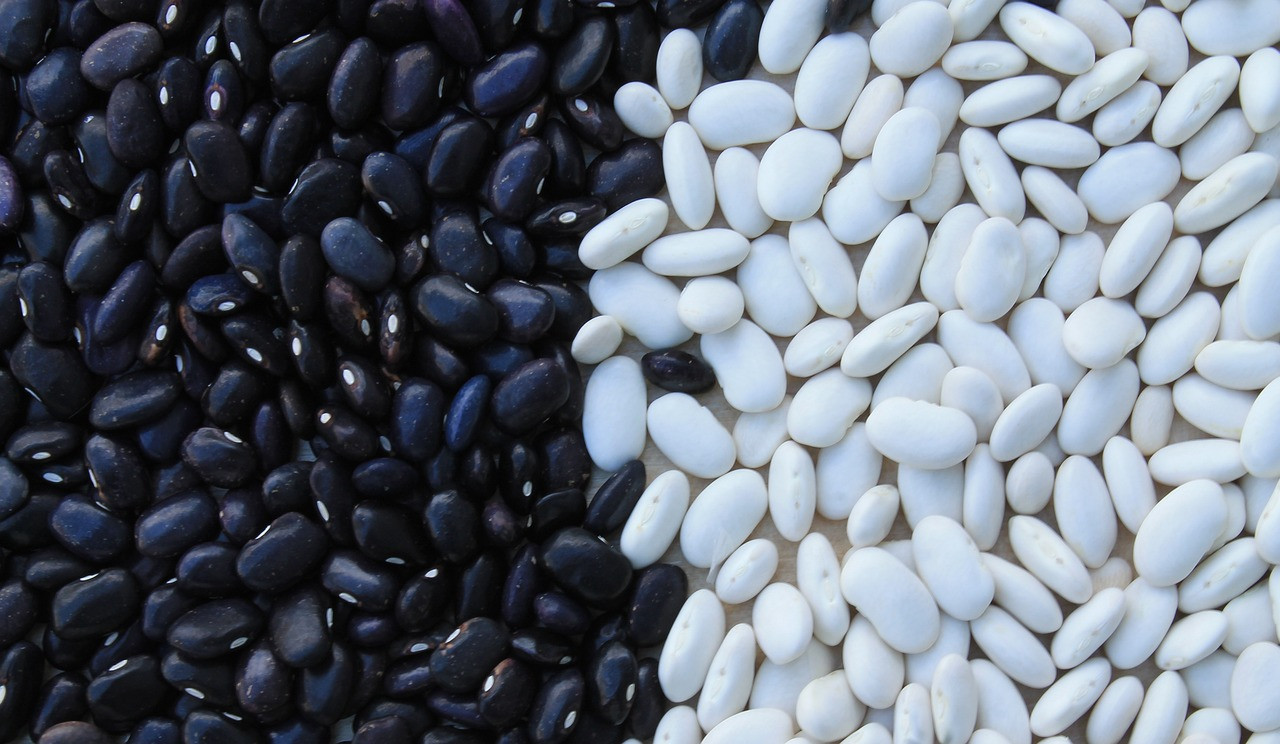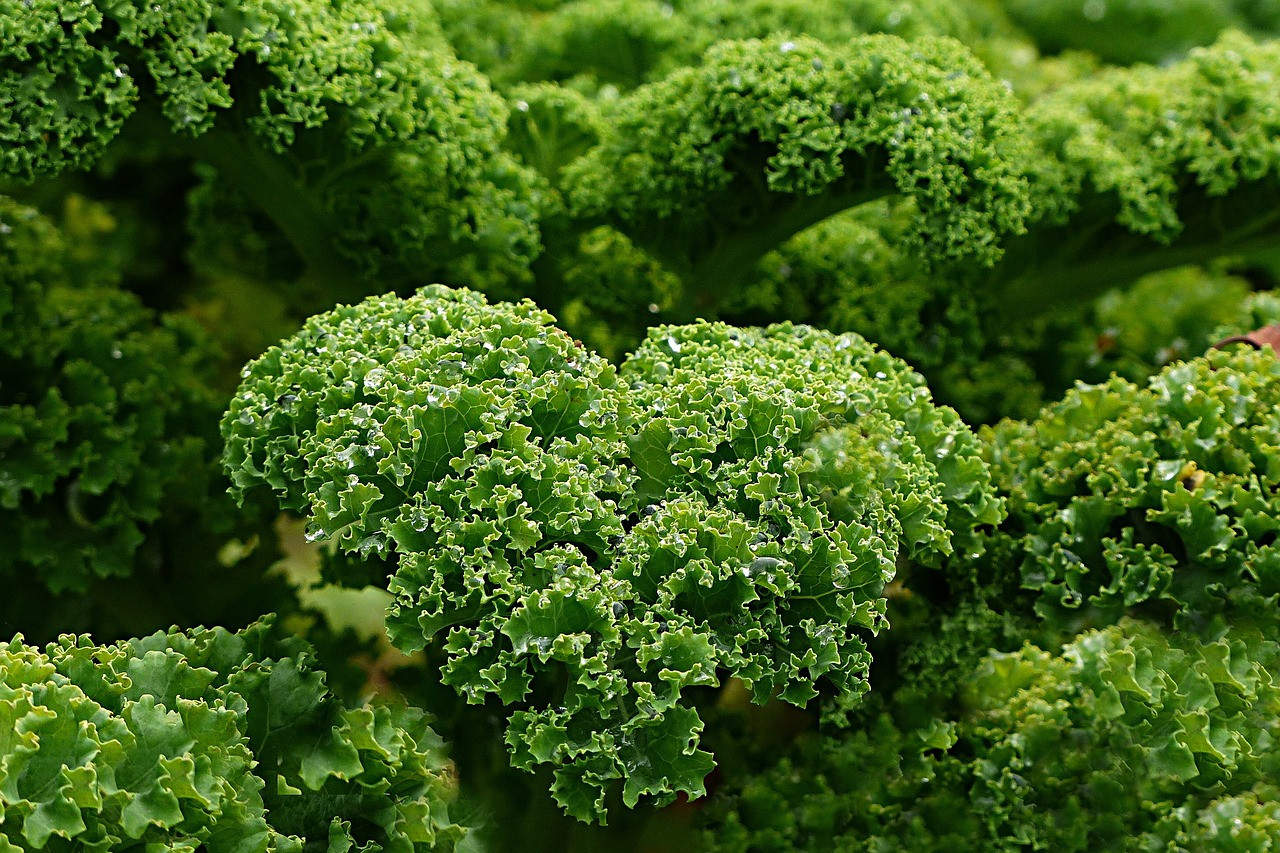
Beans are an incredibly nutritious food that provide a variety of health benefits. They contain fiber, protein, resistant starch, and antioxidants. Beans also contain lectins—a type of carbohydrate-binding protein that can cause digestive issues in some people. Let's discuss how to prepare beans safely to remove lectins so you can enjoy all the health benefits without any of the unpleasant side effects.
Why are Lectins Problematic?
Lectins are a type of protein found in beans and other plant-based foods such as grains and vegetables. While lectins play an important role in defending plants from pests and disease, they can cause digestive upset in humans when eaten in high quantities or if not prepared properly. Common symptoms include nausea, vomiting, diarrhea, bloating, and abdominal pain. For this reason, it's important to take steps to reduce the amount of lectins in your food.
How to Reduce Lectin Content
The first step is to soak your beans overnight before cooking them. This helps break down the outer layer of the bean which contains most of the lectin content. After soaking them overnight, rinse them thoroughly with cold water before cooking them in boiling water. Here is a chart with the soak and cook time for each bean. This will reduce the lectin content significantly so that it’s unlikely to cause any digestive issues. Additionally, adding spices such as turmeric or ginger while you cook your beans may help decrease their lectin content even further while also adding flavor!
Another way to reduce lectin content is by using a slow cooker when cooking you're beans as this method allow for longer cooking times at lower temperatures than regular stovetop cooking which helps further break down lectin proteins. Be aware that kidney beans must boil for at least 10 minutes at high before simmering. Using an Instapot reduces the lectin as well, and doesn't take such a long time. You can also buy pre-cooked canned versions of many types of beans which have already had their lectin content reduced through processing but be aware that these products often contain added sodium so always read labels carefully if you’re watching your sodium intake! Canned beans are also more expensive than dry beans, so if you are trying to watch your budget, dry beans are the way to go - and they taste better, too!
Beans are a nutrient-rich food that offer great health benefits but unfortunately they do contain some levels of lectins which can cause digestive problems for some people if eaten in large amounts or not prepared properly. To ensure that you get all the nutritional benefits from eating beans without any unpleasant side effects, follow the tips outlined above for reducing their lectin content before consuming them—soak overnight then boil & simmer or cook in an Instapot for quicker meals or a slow cooker for even longer periods at lower temperatures! Holistic moms should feel confident preparing delicious meals with beans knowing that they’re taking steps to reduce their family’s risk of experiencing unwanted side effects from eating them!
My blogs contain some affiliate links.
Any purchase made is a blessing to my family at no extra cost to you!
Thank you for supporting us!


Calcium is a vital nutrient for strong bones and healthy teeth, but many people believe it can be difficult to get enough if you don’t eat dairy. Fortunately, there are plenty of delicious and nutritious ways to get your daily dose of calcium without having to consume cow’s milk or yogurt. Let’s explore some of the best alternatives.
Almonds and Other Nuts and Seeds
Nuts and seeds are an excellent source of calcium and many other vitamins and minerals. Many people think these are unhealthy because they are high in fat, but they are actually packed with healthy fats that can help keep your body fit and energized. Almonds in particular contain almost as much calcium per serving as an 8 ounce glass of milk! They also contain phosphorus, which helps the body absorb more calcium from other sources.
Leafy Greens and other green vegetables
Leafy greens like spinach, kale, and collard greens, as well as other green veggies like broccoli are all excellent sources of calcium! These veggies pack a nutritional punch – not only do they contain substantial amounts of calcium, but they also offer a wealth of vitamins A, C, K, magnesium and iron. To maximize absorption rates, try sautéing them with a little olive oil or adding them to soups or stir-fries.
Beans
Did you know that beans can be a great source of calcium? It's true! There are plenty of foods that contain this crucial nutrient, including beans. Some types of beans that are particularly rich in calcium include navy beans, white beans, and black-eyed peas. So, if you're looking to up your calcium intake in a plant-based way, consider incorporating more beans into your diet. Plus, beans are versatile and delicious, making them an easy addition to any meal.
Grains
Did you know that some grains are a good source of calcium? If you're looking to up your calcium intake, don't overlook grains like amaranth, teff, and quinoa. These superfoods contain higher levels of calcium compared to other common grains like wheat or oats. So next time you're browsing the grocery store aisles for healthy grains, consider adding some of these calcium-rich options to your cart.
Tofu
Tofu is made from soybeans, which means it is full of plant-based protein as well as calcium. It is also low in calories—so if you’re looking for a way to stay trim while getting your daily dose of essential nutrients, tofu could be a great choice for you! For maximum nutrition benefits, look for tofu that has been fortified with additional calcium or check the nutrition label before purchasing. Be sure to get only organic to avoid the pesticide laden alternative and eat sparingly because of the estrogenic effects it has.
Calcium Supplements
If you’re looking for an easy way to get your daily dose of calcium without having to eat any dairy at all, then supplements are definitely worth considering. Not only do they provide a convenient way to get the recommended amount each day (1), but they also come in a variety of forms such as pills and powders which can make it easier to swallow them down. If you decide to go this route just remember that supplements should never replace real food sources.
Getting your daily dose of calcium doesn't have to mean consuming dairy products every day; there are plenty of delicious alternatives available! Almonds and other nuts provide healthy fats along with added calcium; leafy greens like spinach pack a nutritional punch; and tofu contains plant-based protein plus lots of essential vitamins and minerals. No matter what dietary restrictions you may have, there's no excuse not to get enough calcium—just take advantage of the myriad options out there! Holistic moms can rest assured knowing that their families don't need dairy products to get their daily dose of this important mineral.
My blogs contain some affiliate links.
Any purchase made is a blessing to my family at no extra cost to you!
Thank you for supporting us!


We’ve all heard the saying that fast food is “so bad, it’s good.” But why? Why is fast food so addictive? It’s not just the taste; there are several factors at play here that make it so hard for us to resist. Let’s take a look at what makes fast food so irresistible and how you can keep yourself from succumbing to its siren call.
The Taste Test: Fast food often has a distinct flavor profile that many of us find irresistibly delicious. This flavor profile often includes a combination of sweet, salty, fatty, and umami ingredients—all of which make up a tantalizingly tasty treat that our brains link to pleasure and satisfaction.
The Convenience Factor: Fast food restaurants have become ubiquitous in society, making them easily accessible for the average person on-the-go. They also offer convenience when you don't have time to cook or don't want to spend hours preparing meals. That convenience factor makes it easier for people to choose fast food over other options without having to think too much about it.
The Marketing Machines: The biggest factor in why fast food is so addictive is its marketing strategy. Fast food companies use clever advertising campaigns, packaging design, and aggressive pricing strategies to entice customers into buying their products. They also employ psychological tactics such as creating cravings by linking their products with certain emotions or situations (e.g., "treat yourself" or "take a break"). All of these marketing techniques work together to drive sales and create an addiction-like response in people who enjoy their products.
All in all, fast food has become an integral part of our lives—but this doesn't mean that we have to succumb to its addicting powers! By being aware of the factors behind its addictive qualities, we can make better choices about when and how much we consume fast food items. Holistic moms should be mindful of what they feed themselves and their families and strive for balance when it comes to diet and nutrition. Saying goodbye to fast food and start choosing healthier options whenever possible will help ensure your family stays healthy inside and out!
My blogs contain some affiliate links.
Any purchase made is a blessing to my family at no extra cost to you!
Thank you for supporting us!


Fast food has been a staple in American culture for decades. It’s convenience and affordability have made it a go-to option for busy families and individuals alike. But what if we told you there were some hidden dangers lurking behind those greasy burgers and fries? If you’ve been wondering why you should stop eating fast food, read on!
The Unhealthy Facts
As you may already know, fast food is high in unhealthy fats, sugars, and sodium (salt). Eating this type of food can lead to health problems like obesity, diabetes, hypertension, and more. Not only that, but many fast food restaurants also use additives and preservatives in their meals which can cause digestive issues like bloating or indigestion.
Many of us have struggled with it at some point in our lives; the allure of fast food is undeniable. But why are we so drawn to these convenient, high-calorie foods? Is there something about them that makes them so hard to resist? Let’s explore the science behind fast food addiction and what we can do to break free from its spell.
The Science Behind Our Cravings
It turns out that there is actually a scientific explanation for why fast food is so addictive. According to recent studies, fast food activates the reward center in our brains, which releases dopamine—the neurotransmitter responsible for feelings of pleasure and satisfaction. This dopamine release reinforces our cravings for more of this type of food and leads to overeating and poor dietary choices.
Another factor contributing to our addiction is the combination of fat, sugar, and salt found in most fast foods. These substances activate receptors on our tongue that stimulate the reward center in our brain, leading to an even stronger craving for unhealthy foods. Furthermore, some researchers argue that certain types of fat may be addictive in a similar way as drugs like heroin or cocaine. As if that weren’t enough reason to stay away from fast food!
Breaking Free From Fast Food Addiction
Clearly, if we want to break free from our addiction to fast food, we will need some help! One strategy is to focus on eating whole foods instead of processed options since they contain higher amounts of vitamins, minerals and fiber. Additionally, you can cut back on sugary drinks such as soda or juice which can trigger cravings for sweet treats. Finally, remember that physical activity also helps reduce cravings by releasing endorphins—your body's natural feel-good chemicals!
It's Time To Take Your Health Into Your Own Hands
If you want to take control of your own health and wellness, then it’s time to say goodbye to fast food. You don’t have to give up all the yummy snacks that come with going out to eat; just make sure you opt for healthier options when possible. Try grilled fish instead of fried chicken or baked potatoes instead of French fries. And don’t forget about salads! They are usually full of healthy greens and proteins that will fill you up without loading your body down with saturated fats or processed sugars.
Take The Time To Cook At Home
Cooking at home is the best way to ensure that your food is healthy and nutritious. Not only does it allow you to control what goes into your meals, but it also allows you to connect with family members as everyone gathers around the table for dinner. Taking the time to cook at home will not only help improve your physical health, but it can also help improve mental wellbeing by providing quality bonding time with those closest to you.
It's time for us all to start taking our health seriously! Eating too much fast food can put a serious strain on our bodies—not just physically but mentally as well. Instead of relying on quick fixes like drive-thru dinners or pre-packaged snacks, take some time out of your day each week to cook something delicious at home with family or friends. Your body (and mind!) will thank you later! We know that fast food is incredibly addictive due its high content of fat, sugar and salt combined with its ability to activate the reward center in our brains. However, by making healthier choices such as eating whole foods instead of processed options and trading out sugary drinks for healthy options we can break free from this addiction without sacrificing flavor or convenience! Holistic moms should take heart knowing that by taking small steps each day they can start developing healthier habits while still enjoying delicious meals with their family throughout their journey towards health and wellness!
My blogs contain some affiliate links.
Any purchase made is a blessing to my family at no extra cost to you!
Thank you for supporting us!


Blueberries are a popular and delicious fruit that have been shown to have several health benefits, including potent anti-inflammatory properties. Chronic inflammation can lead to a wide range of health problems, including heart disease, cancer, and type 2 diabetes. Blueberries contain several compounds that have demonstrated anti-inflammatory effects, making them a promising food for preventing and treating chronic inflammation.
One of the key components in blueberries is their high level of anthocyanins, which are a type of flavonoid. Anthocyanins have been shown to have potent anti-inflammatory effects by reducing the production of pro-inflammatory cytokines and other markers of inflammation. A study published in the European Journal of Nutrition in 2016 found that consuming blueberries reduced levels of the pro-inflammatory marker interleukin-6 (IL-6) in adults with metabolic syndrome.
In addition to anthocyanins, blueberries are also a rich source of several other antioxidants, including vitamin C, vitamin E, and polyphenols. These compounds can help neutralize free radicals, which are unstable molecules that can cause inflammation and damage to cells and tissues. A study published in the Journal of Agricultural and Food Chemistry in 2018 found that consuming blueberry extract reduced inflammation and oxidative stress in rats with colitis.
Blueberries are also a good source of fiber, which has been shown to have anti-inflammatory effects. Fiber can help promote healthy digestion and bowel movements, and also helps feed the beneficial bacteria in the gut that play a critical role in immune function and inflammation. A study published in the Journal of Nutrition in 2020 found that consuming blueberries improved gut microbiota composition and reduced markers of inflammation in obese adults.
In addition to their anti-inflammatory properties, blueberries have been found to improve several other health markers. A study published in the Journal of the American College of Cardiology in 2015 found that consuming blueberries improved endothelial function and reduced blood pressure in adults with metabolic syndrome. Another study published in the American Journal of Clinical Nutrition in 2017 found that consuming blueberries improved cognitive function in older adults.
Blueberries are delicious and nutritious fruits that have potent anti-inflammatory properties. Their high level of antioxidants, fiber, and other beneficial compounds make them a promising food for preventing and treating chronic inflammation and related conditions. By incorporating blueberries into a balanced and healthy diet, individuals can improve their overall health and well-being. Besides eating them, I drink them, too!
My blogs contain some affiliate links.
Any purchase made is a blessing to my family at no extra cost to you!
Thank you for supporting us!



